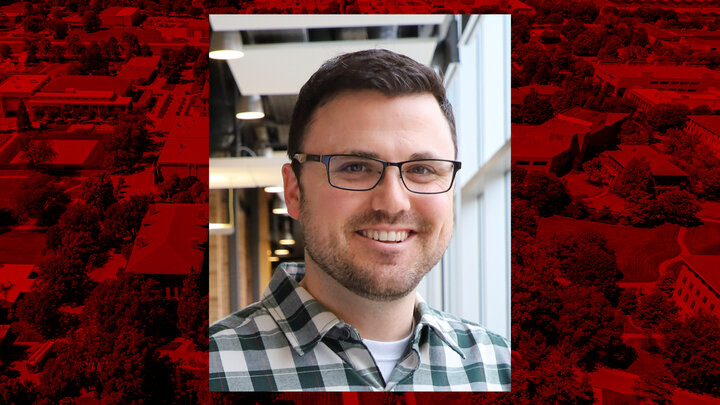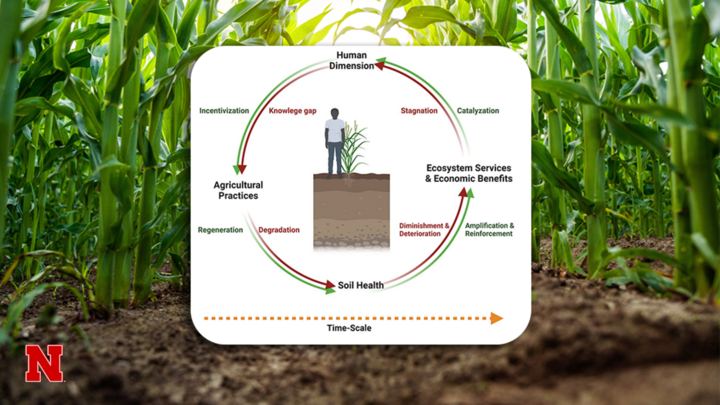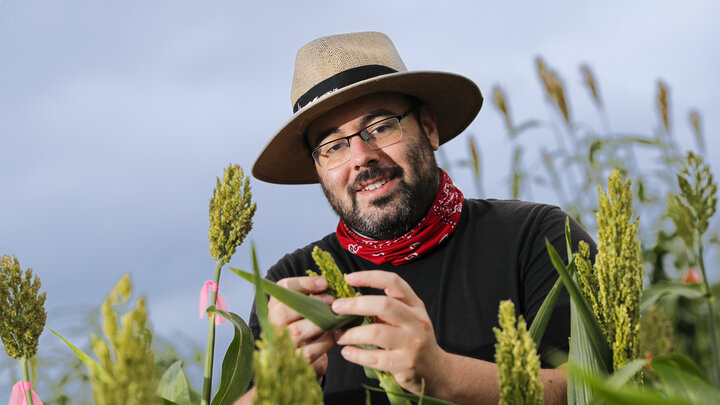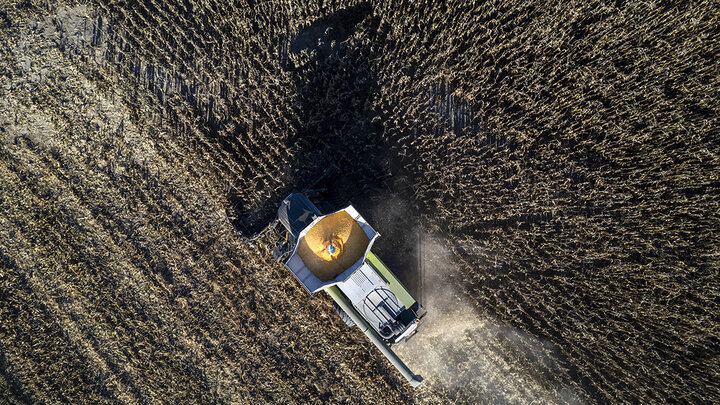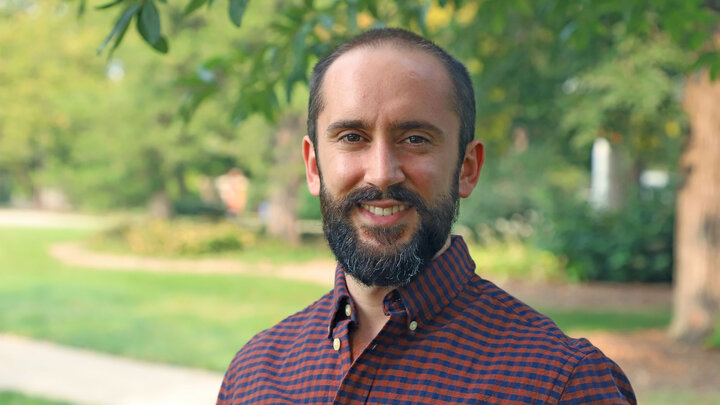Sam Wortman, associate professor of agronomy and horticulture, received the College of Agricultural Sciences and Natural Resources College Distinguished Teaching Award in recognition of excellence in teaching.
Coordinated by the Office of the Executive Vice Chancellor, each college at the University of Nebraska–Lincoln nominates one faculty member every year based on accomplishments and qualifications in teaching, advising, creative activities, impact on students and leadership.
“Peer recognition through these awards is a nice way of lifting up and acknowledging the significant time, energy and creativity teachers pour into their classrooms, and I’m thankful to Don Lee and CASNR for recognizing my contributions this year,” Wortman said. “Awards for teachers are personally rewarding because our impacts are not always as visible as those for researchers who can tally publications and grant dollars as straight-forward impact metrics. Teaching impacts are often less quantitative and more long-term – for example, a student’s future professional success.”
A native of Elkhorn, Nebraska, Wortman earned his master’s and doctoral degrees in agronomy from Nebraska. He then spent four years as assistant professor of urban agriculture at the University of Illinois. In 2016 he began his career at Nebraska with a 75% teaching and 25% research appointment.
Wortman teaches four courses including Plant and Landscape Systems 100 Plants, Landscapes, and the Environment, PLAS 221 Plant Propogation, PLAS 425/Agronomy 825 Cover Crops in Agroecosystems, and PLAS 454/Horticulture 854 Specialty Crop Innovations.
Wortman and Andrea Basche, associate professor in agronomy and horticulture, secured a $10 million USDA-NIFA CAP grant titled “Enhancing the Sustainability of US Cropping Systems through Cover Crops and an Innovative Information and Technology Network” with teaching, research and extension components and on-farm cover crop research. In the education component of the grant, they developed the multi-university PLAS 425/AGRO 825 Cover Crops in Agroecosystems course.
“His partnership with Andrea Basche to develop and deliver this multi-institution course to over 50 UNL students is a shining example of our department’s potential for collaboration that helps our students,” said Don Lee, professor of agronomy and horticulture. “Delivery on national level priorities in a way that directly impacts the future and current food system professionals he works with daily, epitomizes the best attributes of a scientist and scholar.”
Wortman’s research is focused on the design, creation and testing of new methods, ideas and products to support local specialty crop growers and improve sustainability of local food systems through the Grow Local Innovation Lab.
“His research program prioritizes by recognizing that we need more robust, reliable and dynamic local food systems,” Lee said. “His goal is to equip more people and professionals to be engaged in successfully growing food for their communities and local customers.”
Integrating his research into the classroom is very important for Wortman. For example, research on tomato grafting helped inform lab activities and data sets used in PLAS 221 Plant Propagation; research on biobased and biodegradable mulches was used to design a lab activity and authentic performance task in PLAS 454/HORT 854 Specialty Crop Innovations; and research on new uses for cover crops is being used in PLAS 425/AGRO 825 Cover Crops for Agroecosystems.
“In my classes, I always aim to create authentic performance tasks that allow students to use new knowledge in a professionally meaningful way,” Wortman said. “Beyond traditional ‘learning by doing,’ I want students to learn by doing things they will do as professionals in plant, soil and landscape systems.”
Wortman’s advice for students to be successful is to get involved.
“Join clubs or judging teams, work in a research lab, TA for a class you’ve already taken, or work as a student ambassador to help recruit the next generation of plant, soil and landscape professionals,” Wortman said. “It is through this involvement that you will develop the most meaningful, long-term friendships, and begin building your professional network and resume.”
